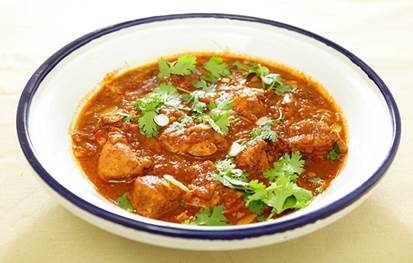
Ingredients
3 kg
onions, finely diced
1
large chicken, preferably free-range
100 ml
white vinegar
1
lemon, juiced
100 ml
olive oil
3 tbsp.
niter kibbeh
6 tbsp.
berbere
12
eggs, hard-boiled
Mixed spices
2 tbsp.
cardamom seeds
2 tbsp.
nigella seeds
2 tbsp.
ajowan or fennel seeds
1 tbsp.
dried African basil (optional)
2 tsp
black peppercorns
2 tbsp.
salt
Instructions
It is best left to sit overnight so that the flavors infuse then eat it the following day at room temperature.
Place the onion in a large, heavy-based pot, cover with a lid and cook over low–medium heat, stirring occasionally. Do not add any oil or liquid. Cook for about 1 hour, until the onion has reduced.
While the onion is cooking, remove the skin from the chicken and cut into portions, trimming off any fat. (In Ethiopia, they cut it into 21 portions.)
Mix the vinegar and lemon juice together and sit the chicken pieces in the liquid for 10–15 minutes, then drain.
Combine the ingredients for the mixed spices in a mortar and grind to a powder.
When the onion has reduced add the olive oil, niter kibbeh and berbere and stir well. Add the chicken.
Bring the mixture to the boil, then reduce the heat to a simmer. Stir the spices into the stew and add extra salt if needed.
Simmer until the chicken is cooked through, making sure the onion does not stick to the bottom of the pot. Spoon out some of the excess oil that settles on top.
Cut vertical grooves into the hard-boiled eggs to ensure the flavor seeps in. When the stew is cooked, add the eggs and turn off the heat.
The doro wat can be served immediately with injera but is even better the following day when the spices have worked their magic.
Courtesy of Karim Dagal

